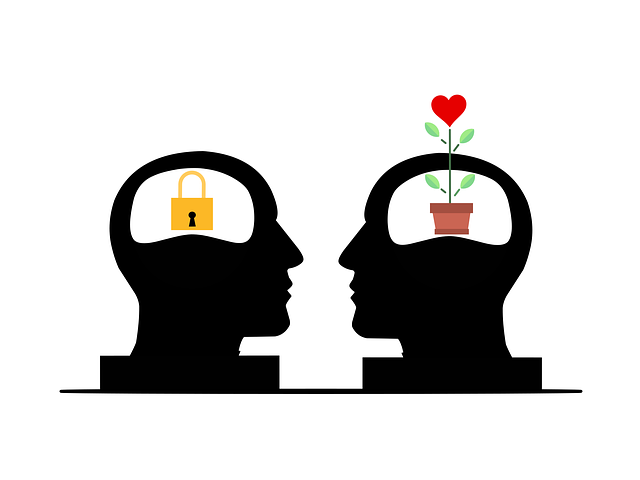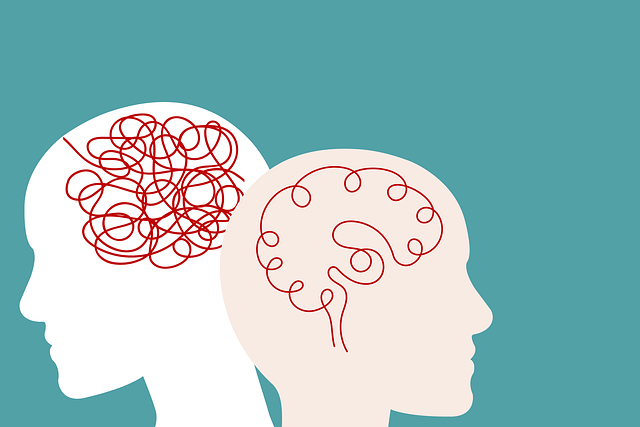Emotional intelligence (EI) is a powerful tool for personal growth and effective communication, particularly in Colorado Springs Anger Management Therapy. Self-awareness, a core component of EI, helps individuals manage emotions and interact better. This therapy equips people with communication strategies, mindfulness techniques, and stress reduction methods to transform angry impulses into positive change. Building empathy through active listening, non-verbal cues, and mental wellness journaling further enhances EI. Effective communication taught in this setting combines emotional expression and logic for stronger relationships and conflict resolution. Practicing mindfulness reduces stress, anger, and triggers, promoting inner peace and healthier coping strategies.
Emotional intelligence (EQ) is a powerful tool for personal growth and effective relationships. In this comprehensive guide, we explore essential components of building EQ in Colorado Springs Anger Management Therapy. From understanding the foundation of self-awareness to recognizing and managing anger, enhancing empathy, developing communication skills, and practicing mindfulness, each section offers practical strategies for improving emotional intelligence. By integrating these techniques, individuals can foster deeper connections, navigate relationships with ease, and lead more fulfilling lives.
- Understanding Emotional Intelligence: The Foundation of Self-Awareness
- Recognizing and Managing Anger: A Key Component of EQ
- Strategies for Enhancing Empathy: Connecting with Others Deeply
- Effective Communication Skills: Bridging the Gap Between Emotions and Words
- Practicing Mindfulness: Cultivating Presence and Emotional Regulation
Understanding Emotional Intelligence: The Foundation of Self-Awareness

Emotional intelligence (EI) is a powerful tool for personal growth and effective communication. At its core, EI begins with self-awareness—a fundamental aspect that forms the foundation for building emotional intelligence in Colorado Springs Anger Management Therapy settings. Understanding one’s emotions, strengths, and weaknesses is crucial in managing reactions and interactions with others. This process involves recognizing and interpreting feelings, both within oneself and in those around them, which significantly enhances interpersonal relationships.
In the context of burnout prevention and mental health policy analysis and advocacy, EI plays a pivotal role. Healthcare providers, for instance, can enhance patient care by cultivating emotional intelligence through training programs that focus on cultural competency. This ensures they understand and respect diverse patient backgrounds, leading to improved diagnosis and treatment outcomes. By recognizing their own emotions and those of their patients, healthcare providers can create a more empathetic and effective healing environment.
Recognizing and Managing Anger: A Key Component of EQ

Anger is a powerful emotion that, when left unmanaged, can lead to destructive behaviors and strain relationships. Recognizing and effectively managing anger is a crucial aspect of emotional intelligence (EQ). In Colorado Springs Anger Management Therapy, individuals learn valuable communication strategies to express their feelings constructively. By understanding the underlying causes of anger, one can transform it into a catalyst for positive change.
Social Skills Training plays a significant role in this process, enabling individuals to respond mindfully and adaptively to angry impulses. Additionally, maintaining a mental wellness journal can offer guidance on tracking triggers and emotions, fostering self-awareness. This practice helps individuals make informed decisions about their reactions, ultimately enhancing their emotional intelligence.
Strategies for Enhancing Empathy: Connecting with Others Deeply

Building empathy is a powerful strategy for enhancing emotional intelligence, and it can be cultivated through meaningful connections with others. In Colorado Springs Anger Management Therapy, professionals often emphasize the importance of active listening and non-verbal cues to foster deeper understanding. Encouraging open dialogue allows individuals to share their perspectives and experiences, creating a safe space for authentic expression. This process helps in recognizing and valuing diverse viewpoints, fostering an environment conducive to empathy.
Additionally, engaging in practices like Mental Health Policy Analysis and Advocacy can promote empathy at a societal level. By examining policies that impact mental wellness, individuals become more attuned to the struggles of others, encouraging a sense of solidarity. Stress Reduction Methods, such as journaling, also play a role by providing an outlet for emotional processing. Writing about experiences and emotions can lead to increased self-awareness and understanding of others’ feelings, thereby strengthening empathy. These practices collectively contribute to a culture of compassion and emotional intelligence in Colorado Springs and beyond.
Effective Communication Skills: Bridging the Gap Between Emotions and Words

Effective communication goes beyond simply exchanging words; it involves a delicate dance between emotions and logic. In Colorado Springs Anger Management Therapy, professionals often emphasize this aspect as a cornerstone of emotional intelligence development. The goal is to help individuals recognize and express their feelings in a constructive manner, ensuring that messages are conveyed clearly and respectfully. This skill is crucial for resolving conflicts, fostering understanding, and building stronger relationships.
By learning effective communication skills, individuals can navigate challenging conversations with empathy and self-awareness. It involves active listening—really hearing what others are saying and feeling—and responding thoughtfully rather than reacting impulsively. This approach not only enhances personal relationships but also contributes to improved mental wellness, as it reduces stress and promotes positive thinking. Stress reduction methods, such as mindfulness practices, are often integrated into the process, creating a holistic Mental Wellness Podcast Series Production that resonates with those seeking emotional growth.
Practicing Mindfulness: Cultivating Presence and Emotional Regulation

Practicing mindfulness is a powerful tool for building emotional intelligence and enhancing mental wellness. By cultivating presence, individuals can learn to be fully engaged in the moment, observing their thoughts and emotions without judgment. This awareness allows for better emotional regulation, enabling people to respond to challenging situations with calmness instead of reacting impulsively. Mindfulness practices, such as meditation and deep breathing exercises, have been shown to reduce stress and anger, promoting a sense of inner peace.
In the context of Colorado Springs Anger Management Therapy, mindfulness techniques can play a pivotal role in crisis intervention guidance. By teaching individuals to recognize triggers and understand their emotional responses, these practices foster healthier coping strategies. Stress reduction methods based on mindfulness have been integrated into various therapeutic approaches, offering valuable tools for navigating life’s challenges with resilience and emotional balance.
Emotional intelligence is a powerful tool for personal growth, fostering healthier relationships, and improving overall well-being. By understanding and managing emotions effectively, individuals can navigate life’s challenges with greater ease. The strategies outlined in this article—from self-awareness to mindfulness—provide a solid foundation for building emotional intelligence. Whether you’re seeking to improve your anger management in Colorado Springs or enhance empathy, these techniques offer a path towards personal transformation and more fulfilling connections. Through consistent practice, anyone can develop emotional intelligence and reap the benefits in all areas of life.














